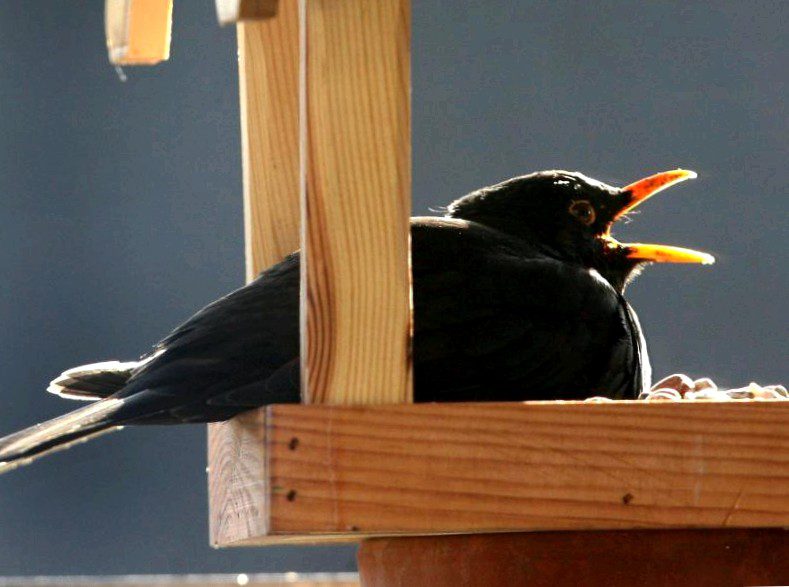City life makes birds early risers

Living in the city can disrupt the internal clock of birds. Their biological rhythms are faster and more disruptive than those of rural birds. This is what researchers from the max planck institute for ornithology in radolfzell on lake constance and the british university of glasgow have discovered.
"The city birds get up earlier and go to bed later," said jesko partecke, who was involved in the study at the max planck institute.
For their research, the scientists have equipped a group of male blackbirds (turdus merula) in munich and in a forest area southwest of the city with mini-transmitters. For several days, the activity of the birds was measured in their natural environment. The animals were then captured and kept in light- and soundproof cages for about ten days.
"Many organisms are calibrated to a day and night rhythm," said partecke. "When they are deprived of this zeitgeber, they begin to show their own inner rhythm."According to the researcher, "this has demonstrated that the period length – the mab, how long or how short the rhythm is – differs between the two populations.".
The results of the study, which were published in the "proceedings of the royal society B."Published: in the field it was shown that blackbirds start and end their day with sunrise and sunset. City blackbirds, on the other hand, wake up 30 minutes earlier on average, and their day ends about nine minutes later – so they’re active almost 40 minutes longer per day than their rural counterparts. Under laboratory conditions, the internal clock of the city blackbirds was found to run 50 minutes faster than that of the wood blackbirds. In addition, the rhythm of the stadtamseln is more storanfalliger, so not as stable as that of waldamseln. "In the open country there are also indications that some even sing in the middle of the night," said partecke.
The reason for the altered biological rhythm could be environmental conditions in cities – such as the nighttime lighting and the higher noise level. Further studies are needed to determine whether a genetic change has also taken place.
It is also unclear whether the changed internal clock has advantages or disadvantages for the animals. "It may be that a bird that is awake earlier, for example, has more chances of finding enough food," said partecke. Research on humans had also shown, however, that night shifts, for example, could have a negative effect on health. "In human research we are a bit further ahead, in zoology we still know relatively little about it."
RELATED POSTS

City council: clearing the way for new local transport services The german city council does not expect a flood of new offers and providers at the start of the new passenger demand law this sunday. Chief executive… |
Archbishop: saint laurentius even gave his life for the church |

The huguenot city is a landmark |

Kiss, kiss, smack: a kiss-ology A kiss from your grandmother, your first kiss as a teenager, a courtly kiss on the hand: there are many kisses in the course of a lifetime – some you are… |
